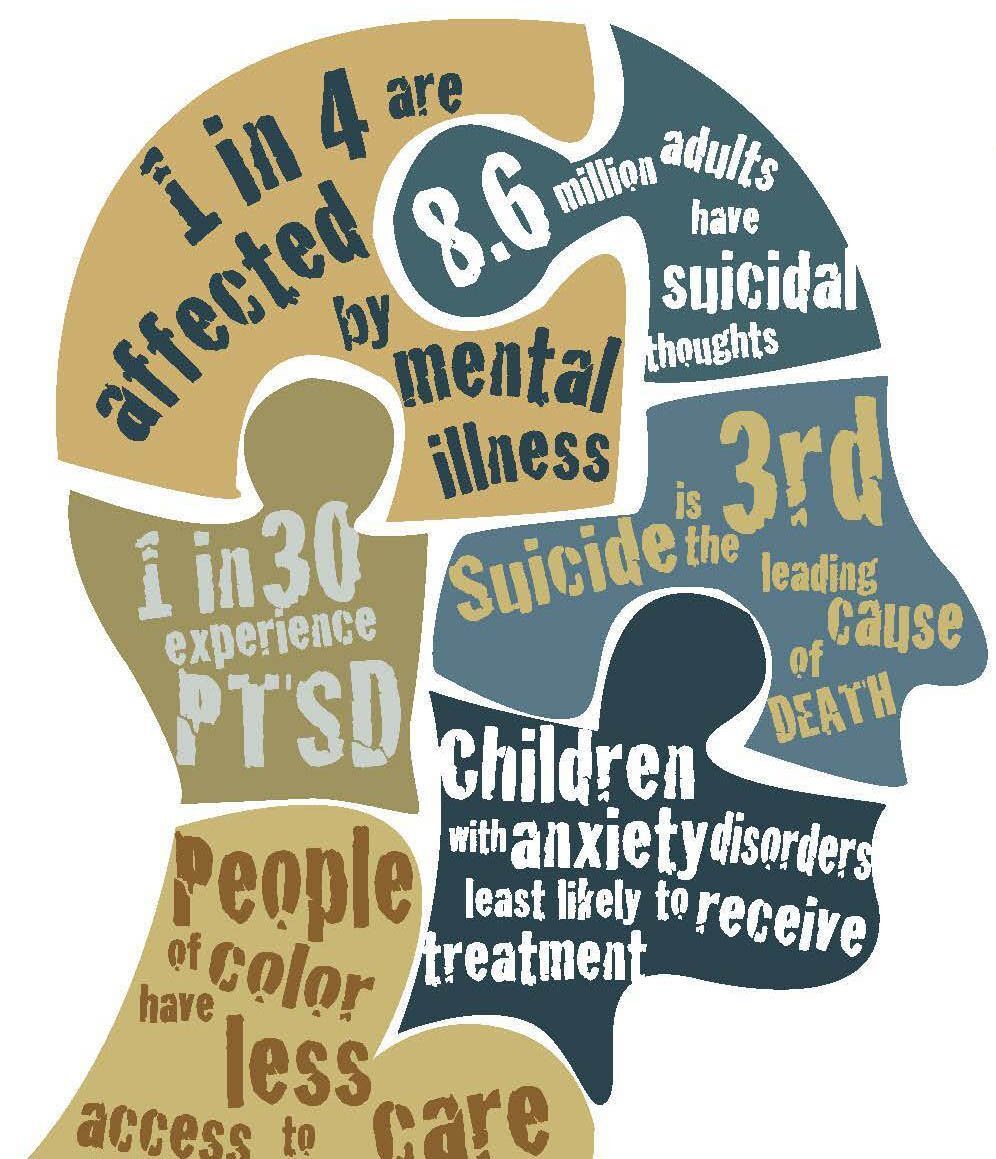Identifying Issues
United Nations Sustainable Development Goals:
- Ensure effective learning for all children and youth for life and livelihood. Achieve health and wellbeing at all ages.
“The World We Want 2015” Priorities
- Better healthcare
- A good education
How does our community compare in numbers of people who:
- Were treated for any mental illness
- Were victims of domestic violence
- Were homeless
- Visited the ER due to drug or alcohol issues (overdose, violence, car crashes)
- Were unemployed
- Suffered from isolation and depression (seniors and disabled)
- Suffered severe stress (child or parent in hospital, child or parent in jail, victim of bullying)
- Were treated for substance abuse
- Attempted suicide
- Committed suicide
Note: One resource for the U.S. is the data available from the Substance Abuse and Mental Health Services Administration (www.samhsa.gov). See state and metro reports at www.samhsa.gov/data/States_In_Brief_Reports.aspx
Prevention and Awareness
Does our community have:
- Prevention and awareness materials and programs (substance abuse, suicide, depression, elder abuse, etc.)?
- School programs and counselors who are trained to recognize mental health and behavioral issues in students?
- Outreach to ethnic communities or others who may be unfamiliar or suspicious of the mental health system?
- Outreach to the elderly, the disabled, or otherwise housebound, who may suffer from isolation/depression
- Peer-to-peer awareness training in our schools?
Professional Support and Training
Does our community have:
- An adequate number of trained professionals (psychiatrists, psychologists, clinical social workers, psychiatric nurses, trained clergy, etc.) to meet community needs?
- Integration of primary care with mental health care?
- Training for law enforcement and other emergency personnel in recognizing and dealing with the mentally ill with compassion?
- Professionals trained to provide compassionate treatment of issues surrounding substance abuse? Other addictions? Trauma?
Services, Facilities and Access
Does our community provide:
- Adequate facilities and “beds” to meet mental health needs (for both emergencies and for ongoing treatment)?
- Access to mental health treatment for those unable to pay?
- Facilities such as halfway houses, day centers, respite care, or residential treatment homes to support mental health for a variety of people in need—including the chronically mentally ill, the disabled?
- Programs and support for families of the mentally ill?
- Self-help and peer support groups for people experiencing mental or behavioral problems, and for their families?
- Programs to support single parents (psychologically and in helping with parenting skills)
- Access to contemplative/mindfulness training/education programs for: mental health workers; schools; police; government; sports; arts; community leaders and adjunct workers (bus drivers, taxi drivers, social group and troop leaders, and the general public)?
- Programs to prevent bullying, including online bullying (in schools or in the community)


